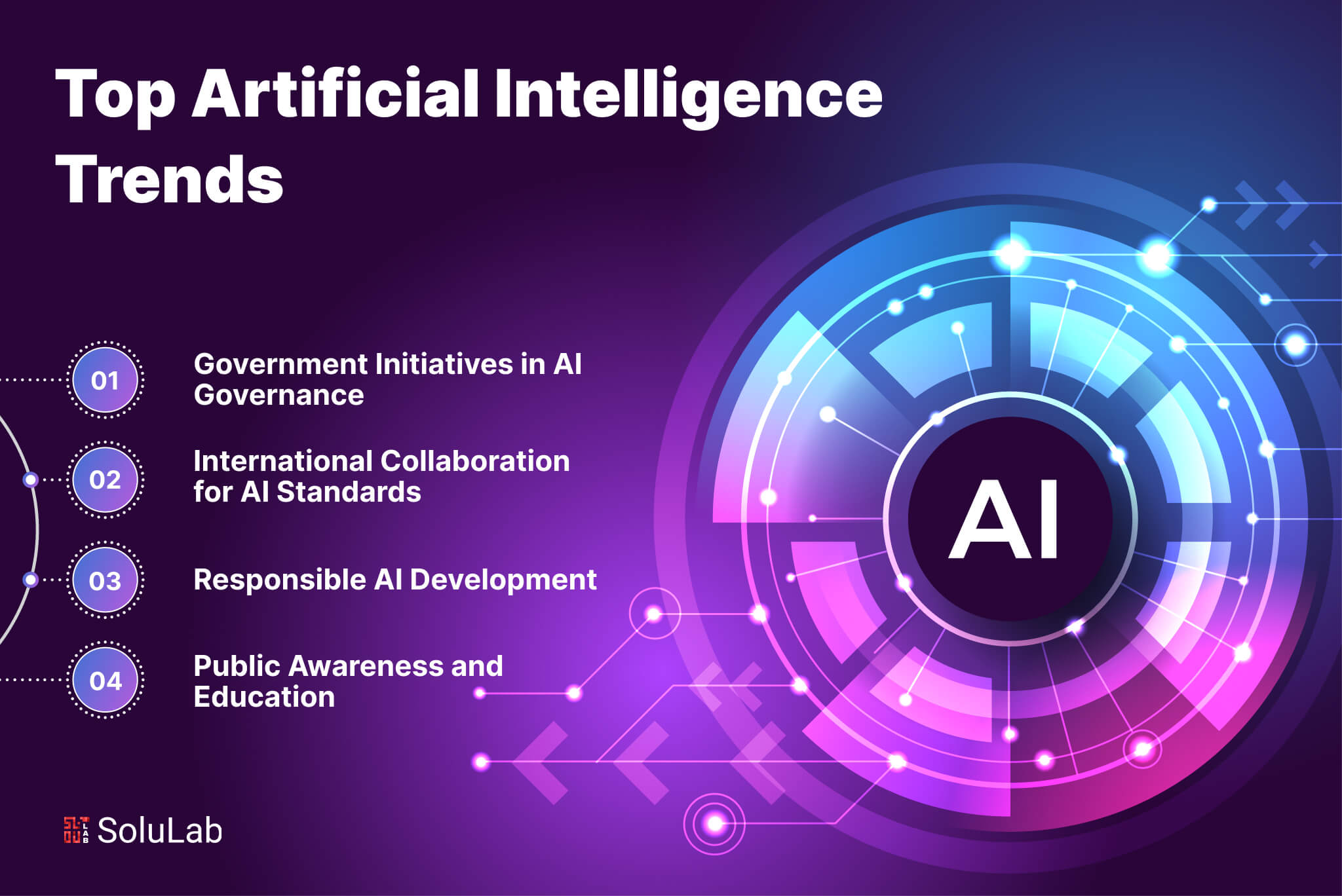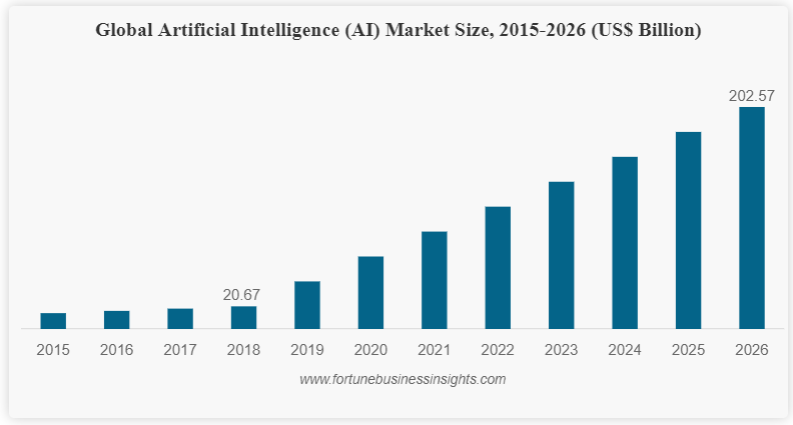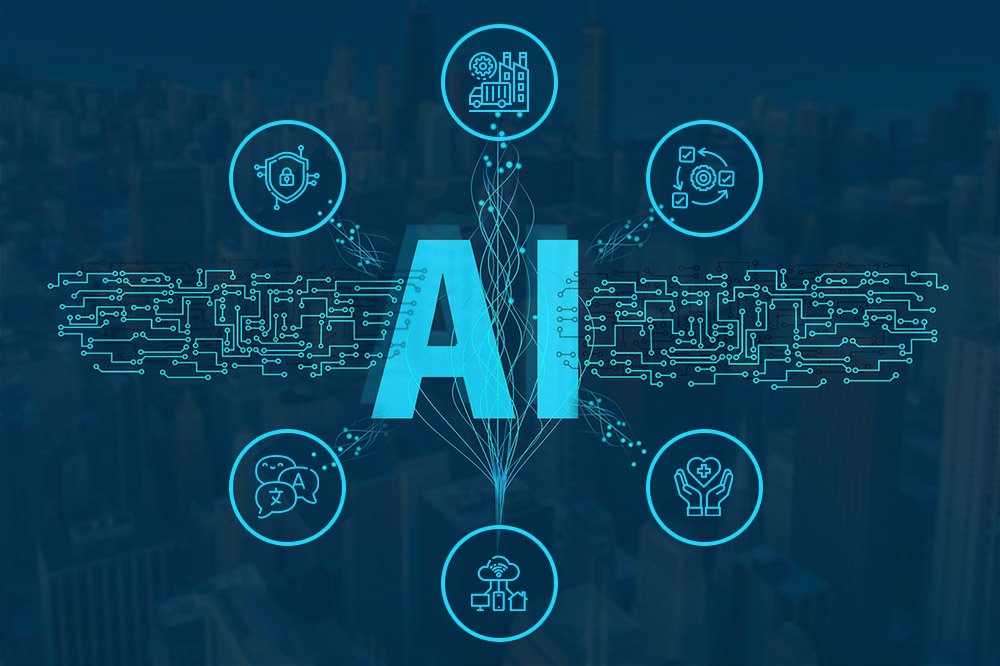Artificial Intelligence (AI) trends are shaping industries rapidly. Key areas include machine learning, natural language processing, and automation.
Artificial Intelligence continues to evolve, driving innovation across various sectors. Businesses increasingly rely on AI to enhance customer experiences and streamline operations. Trends like machine learning enable systems to learn from data, improving decision-making. Natural language processing allows for better human-computer interactions, making technology more accessible.
Automation is transforming workflows, increasing efficiency and reducing errors. These advancements not only boost productivity but also open new opportunities for growth. Understanding these trends helps organizations stay competitive and adapt to changing market demands. As AI technology progresses, its influence will only expand, making it essential for businesses to keep pace with these developments.
The Ai Revolution: A Glimpse Into Tomorrow
The AI revolution is transforming our world rapidly. Innovations in artificial intelligence are reshaping industries. Businesses embrace AI to improve efficiency and enhance customer experiences. Understanding these trends helps us prepare for the future.
Rise Of Autonomous Systems
Autonomous systems are becoming more common. They operate independently, reducing the need for human intervention. Examples include:
- Self-driving cars
- Delivery drones
- Automated factories
These systems use AI to learn and adapt. They analyze data from their environments. This allows them to make smart decisions. The benefits include:
| Benefit | Description |
|---|---|
| Increased Safety | Fewer accidents due to human error. |
| Cost Efficiency | Reduced labor costs and operational expenses. |
| 24/7 Operation | Systems can work around the clock. |
Ai And The Internet Of Things
AI and the Internet of Things (IoT) are a powerful combination. IoT connects devices to the internet. This connection allows for data sharing and communication.
AI analyzes this data to improve decision-making. Smart homes and cities use this technology. Benefits include:
- Energy efficiency
- Improved healthcare
- Enhanced security
Smart devices learn user habits. They adjust settings automatically. This makes life easier and more convenient.
As AI and IoT grow, they will create new possibilities. Expect smarter solutions in everyday life.

Credit: www.forbes.com
Ai’s Leap Into Creative Industries
Artificial Intelligence is transforming creative industries rapidly. This technology opens new doors for artists, writers, and designers. AI enhances creativity, allowing professionals to explore innovative ideas. It creates exciting possibilities in content creation, design, and art.
Revolutionizing Content Creation
AI tools are reshaping how we create content. Writers can now use AI to generate ideas and drafts quickly. Here are some ways AI revolutionizes content creation:
- Idea Generation: AI suggests topics based on trends.
- Drafting: AI can write articles and blogs.
- Editing: AI tools help improve grammar and style.
- SEO Optimization: AI suggests keywords to boost visibility.
These tools save time and enhance creativity. Writers focus more on crafting unique messages.
New Frontiers In Design And Art
AI is also changing the way we approach design and art. Designers are using AI to create stunning visuals. Here are some highlights:
| AI Application | Description |
|---|---|
| Generative Art | AI creates art based on algorithms and data. |
| Image Enhancement | AI improves image quality and resolution. |
| Personalized Designs | AI analyzes user preferences for tailored designs. |
Artists can experiment with new styles and techniques. AI expands creative possibilities and pushes boundaries.
AI’s impact on creative industries is profound. It empowers creators and inspires new ideas.
Machine Learning Breakthroughs And Innovations
Machine learning is transforming industries. New breakthroughs enhance how machines learn. These innovations improve decision-making and efficiency.
Advancements In Deep Learning
Deep learning uses neural networks. These networks mimic how our brain works. Recent advancements include:
- Natural Language Processing: Machines understand human language better.
- Computer Vision: Improved image recognition and analysis.
- Generative Adversarial Networks (GANs): Create realistic images and videos.
These advancements lead to:
- Smarter virtual assistants.
- Enhanced medical diagnostics.
- More accurate financial predictions.
The Edge Of Predictive Analytics
Predictive analytics uses data to forecast outcomes. It helps businesses make better choices. Key features include:
| Feature | Description |
|---|---|
| Data Mining | Extracting patterns from large data sets. |
| Risk Assessment | Identifying potential risks before they happen. |
| Customer Insights | Understanding customer behavior and preferences. |
This technology benefits:
- Retail: Optimizes stock and sales strategies.
- Healthcare: Enhances patient treatment plans.
- Finance: Improves investment strategies.

Credit: www.solulab.com
The Ethics And Governance Of Ai
The rise of artificial intelligence (AI) brings both opportunities and challenges. Ethical concerns arise as AI impacts daily life. Governance frameworks are essential to ensure responsible AI development. Addressing these issues is crucial for a fair future.
Navigating Ai Bias And Fairness
AI systems often reflect human biases. This can lead to unfair outcomes in critical areas. Key points to consider include:
- Data Quality: Biased data leads to biased AI.
- Transparency: Clear algorithms help identify biases.
- Inclusivity: Diverse teams create fairer AI solutions.
Addressing bias is vital for trust in AI. Organizations must implement strategies to mitigate bias.
- Regular audits of AI systems
- Training on ethical AI use
- Engaging with affected communities
Regulatory Frameworks Shaping Ai
Governments are creating regulatory frameworks for AI. These frameworks aim to protect users and promote fairness. Key regulations include:
| Country | Regulation | Focus Area |
|---|---|---|
| EU | AI Act | High-risk AI systems |
| USA | Algorithmic Accountability Act | Transparency in algorithms |
| UK | Data Protection Act | User data rights |
These regulations guide ethical AI development. They promote accountability and user protection. Organizations must stay informed about evolving laws.
The Future Of Work With Ai
The future of work is rapidly changing due to Artificial Intelligence (AI). AI is transforming industries and reshaping jobs. Companies are adopting AI to improve efficiency and productivity. Workers need to adapt to these changes. Understanding AI’s impact is essential for success.
Ai-driven Automation And Job Market
AI-driven automation is changing the job market. Many tasks are now automated. This leads to job displacement in some areas. However, new job opportunities arise in others.
Key points about AI-driven automation:
- Increased efficiency in repetitive tasks.
- Reduction in human error.
- Cost savings for businesses.
Jobs in demand include:
- AI specialists
- Data analysts
- Cybersecurity experts
Understanding these shifts is crucial for workers. Adapting to new roles will enhance career prospects.
Upskilling For The Ai Era
Upskilling is vital in the AI era. Workers must learn new skills to stay relevant. Companies support training programs to help employees grow.
Popular skills for the AI era include:
- Data analysis
- Machine learning
- Programming languages like Python
Training options are available:
| Training Type | Description | Duration |
|---|---|---|
| Online Courses | Flexible learning at your own pace. | Varies |
| Workshops | Hands-on training with experts. | 1-3 days |
| Certifications | Formal recognition of skills. | 6 months – 1 year |
Investing in upskilling leads to better job security. Workers can thrive in an AI-driven world.

Credit: www.xorlogics.com
Frequently Asked Questions
What Are The Latest Trends In Artificial Intelligence?
The latest trends in artificial intelligence include advancements in natural language processing, machine learning, and computer vision. AI is increasingly being integrated into various industries, enhancing automation and data analysis. Innovations like generative AI and ethical AI practices are also gaining momentum, shaping the future of technology.
How Is Ai Transforming Industries Today?
AI is transforming industries by improving efficiency and decision-making. In healthcare, it aids in diagnostics and personalized medicine. In finance, it enhances fraud detection and risk assessment. Retail benefits from AI through personalized shopping experiences and inventory management, driving innovation and growth across sectors.
What Are Ethical Considerations In Ai Development?
Ethical considerations in AI development focus on transparency, accountability, and fairness. Developers must ensure that AI systems are free from bias and respect user privacy. Additionally, there is a growing emphasis on responsible AI usage, aiming to mitigate risks and foster trust among users and stakeholders.
How Does Ai Impact The Job Market?
AI impacts the job market by automating repetitive tasks, which can lead to job displacement. However, it also creates new opportunities in AI development, maintenance, and oversight. Upskilling and reskilling are essential for workers to adapt, as the demand for tech-savvy professionals continues to rise.
Conclusion
Artificial intelligence is reshaping industries at a rapid pace. Staying updated on trends is crucial for businesses to remain competitive. Embracing AI can enhance efficiency, drive innovation, and create new opportunities. By understanding these trends, organizations can better prepare for the future and leverage AI to their advantage.
Stay informed and adapt.
